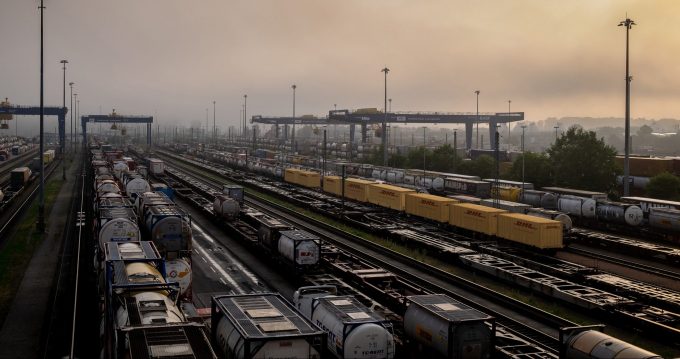Security pilot at port of Rotterdam targets smuggling in containers
As part of the Resilient Port Terminals (WHT) project, Dutch customs has shortened the notice ...

Concerns of a major modal shift from rail to road after the German government reduced its subsidies, and operators announced new surcharges to meet the shortfall, may be overplayed.
State support for the Trassenförderung, the track access charges (TAC), was rolled back in mid-January, but despite being less aggressive than expected, Maersk implemented a €9 ($9.75) per teu “rail infrastructure surcharge” on Rotterdam rail services on 1 April.
This had led to uproar from rail operators and logistics players, all claiming they would be pushed back onto the roads just as the EU was seeking to get cargo on the railways as part of its environmental push.
However, the co-founder of a private rail operator has contested these claims.The source, who did not wish to be named, told The Loadstar: “The changes are causing a level of uncertainty surrounding European rail freight, just as the mode is seen as pivotal for the EU’s net-zero ambitions.
“But, on the other hand the surcharge is likely too small to cause a significant modal shift, unless the German government decides to also adjust road mileage taxation.”
The car and chemical industries, “traditionally heavy rail users”, would be the ones to watch, adding these sectors likely had a hand in the cuts to subsidies being less aggressive than expected, added the source.
Expectations had been for a near-halving of the €350m of TAC subsidies, with subsidies for other elements of the rail freight sector having geared up for a similar slashing of support, but when the draft proposals were published in January, it was noted that TAC would be cut by just €120m.
With an average train boasting capacity of around 80 teu, that cut, and the surcharges by carriers, was expected to result in an increase of about €720 per haul, but the source questioned Maersk’s decision to impose a flat fee, regardless of distance.
They said: “Rotterdam-Koln is 256 km, Rotterdam-Munich is 840km; what about transits through Austria and Hungary which can only be reached over German rail infrastructure?”
Comment on this article